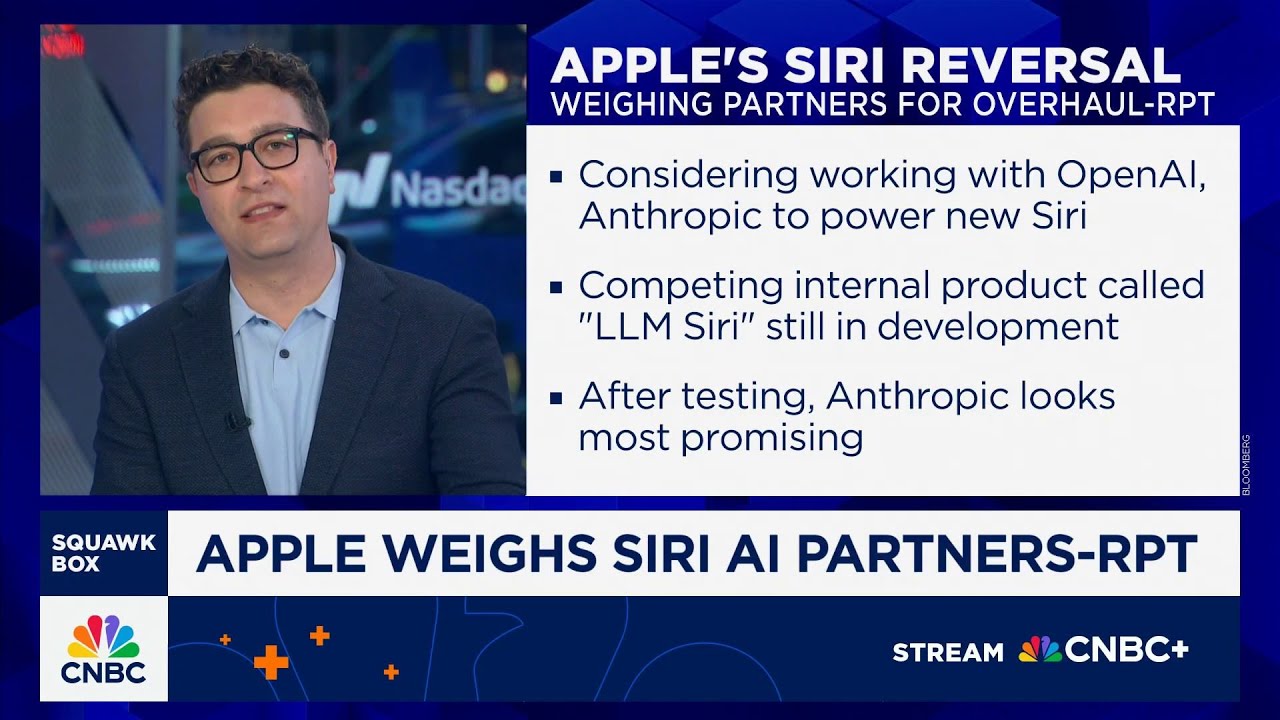Apple is considering partnering with external AI companies like Anthropic or OpenAI to power its Siri assistant, aiming to accelerate AI integration while maintaining user privacy through its private cloud infrastructure. This strategic shift reflects a balance between leveraging advanced AI capabilities and preserving Siri’s reliability and Apple’s strong privacy standards.
Apple is reportedly considering partnering with external AI companies to power its Siri personal assistant, marking a significant shift from its traditional in-house development approach. This move comes after delays in rolling out AI-powered updates to Siri, now pushed to 2026. The news caused Apple’s stock to rise by about 2%, as investors see this strategy as a way for Apple to meet its deadlines and avoid further embarrassment from delays. Bloomberg reports that Anthropic is the leading candidate to provide the underlying AI model, with OpenAI also being considered.
The decision to potentially license AI technology rather than build it entirely in-house is seen by some as a practical move rather than a sign of weakness. While running AI models requires substantial investment in data centers and processing power, partnering with companies like Anthropic or OpenAI could allow Apple to leverage existing technology and infrastructure, reducing capital expenditures. Apple is expected to run these AI services on its own private cloud infrastructure, maintaining control and privacy rather than relying on third-party cloud providers like Amazon or Google.
Privacy remains a critical concern for Apple, which has long emphasized on-device processing to protect user data. Although fully on-device AI processing is currently not feasible for all tasks, Apple’s private cloud system aims to deliver AI-powered features while preserving privacy. The company has even invited third-party researchers to verify its privacy claims. This approach aligns with Apple’s broader strategy of integrating AI deeply into its ecosystem while maintaining user trust through robust privacy protections.
The choice between Anthropic’s Claude and OpenAI’s ChatGPT models also raises questions about ecosystem lock-in and user experience. Currently, ChatGPT is widely used and benefits from features like memory and personalized interactions, which enhance its utility. If Apple adopts Anthropic’s technology, users might shift away from OpenAI’s ecosystem, potentially weakening OpenAI’s dominance. However, integrating AI directly into Siri could create a more seamless and sticky experience for Apple users, who already benefit from tight integration with their devices, apps, and services.
Finally, there are concerns about the reliability and accuracy of AI assistants. Apple’s Siri has historically been more conservative, avoiding major errors even if it sometimes provides less sophisticated responses. In contrast, large language models like ChatGPT can hallucinate or provide incorrect answers, which might not meet Apple’s high standards for user experience. Apple’s challenge will be to balance advanced AI capabilities with the reliability and trust its customers expect, ensuring that Siri remains a dependable assistant within the Apple ecosystem.
